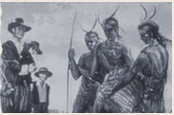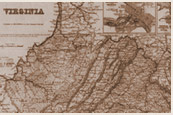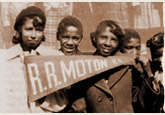Interactive Photo Site of the Selma March (1965)
Alabama Department of Archives and History: Alabama Sovereignty Commission, Administrative Files
Description: This series of 13 news photos from the Selma march offers a visual window through which to launch discussions of various issues, including the composition of the body of marchers in terms of age, gender, and race; what can be deduced about the attitudes of the southern white police; the physical tactics of non-violent resistance to arrest (strategy and utility); and the significance of national news coverage of Civil Rights protests.
Teaching Tips:
"Do Now" Suggestion
- Class could begin with the displaying of one of the photos. Students could be assigned the task of choosing a title for the image, and explaining in their journal why the title they chose was appropriate. This same activity could be used with additional photos, after the first photo and student selected titles are discussed. Presented with all of the photos at the start of class, students could be challenged to place them in the appropriate "order," based on chronology, importance, or any categorization students chose. After placing them in order, students should be prepared to discuss their reasons for placing the photos in the order they chose.
- Students could be assigned to write a news article about the march to Selma, using the photos to illustrate points made in their article. Completed articles, along with the photos, could be displayed in the classroom. Students could compare the depiction of the march to Selma as shown in the pictures, with the resolution made by the Alabama state legislature (see 13b.5). Students could complete their comparison and contrast by writing a short essay, or preparing a short oral presentation, comparing and contrasting theses different perspectives of the Selma march.



